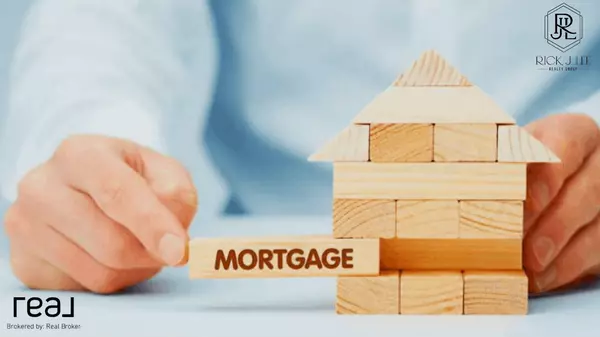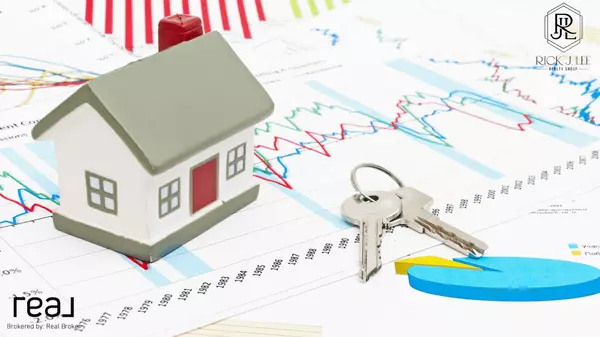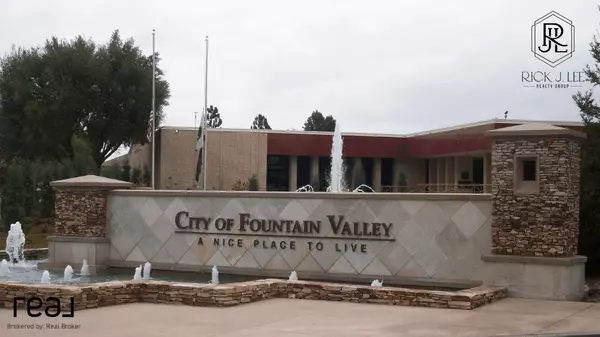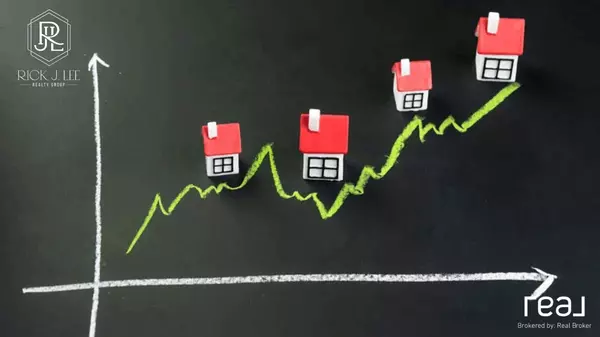The Future of Real Estate Technology
The Rise of Artificial Intelligence in Real Estate
Artificial Intelligence (AI) has emerged as a game-changer in the real estate industry, ushering in a new era of efficiency and precision. One of the most notable applications is in property valuation, where AI algorithms analyze a myriad of data points to provide more accurate and data-driven assessments. This not only benefits sellers in determining the optimal listing price but also assists buyers in making informed decisions based on real-time market trends.
Beyond valuation, AI is enhancing the customer experience through the integration of chatbots in property searches. These intelligent bots engage with users, understanding their preferences and refining property recommendations accordingly. This personalized approach streamlines the search process, making it more efficient and tailored to individual needs. The ability of AI to analyze and interpret vast datasets also contributes to predicting market trends, empowering real estate professionals and investors with valuable insights into potential fluctuations and investment opportunities.
As AI continues to evolve, the real estate sector can expect even greater innovations, from improved virtual property tours to more sophisticated predictive analytics. The marriage of artificial intelligence and real estate is not just about automation but about elevating the entire industry through data-driven decision-making and personalized user experiences.
Virtual Reality: A Paradigm Shift in Property Tours
Virtual Reality (VR) is reshaping the traditional property touring experience, transporting potential buyers into a realm of immersive exploration. Through VR technology, prospective homeowners can virtually walk through properties, experiencing them as if physically present. This not only revolutionizes the way properties are showcased but also addresses logistical challenges, allowing international buyers to explore homes without the need for extensive travel.
The benefits of virtual property tours extend beyond convenience. They provide a realistic sense of space and layout, enabling buyers to visualize themselves within a home. This heightened sense of engagement fosters a deeper connection between the buyer and the property. Real estate professionals are leveraging VR to create compelling and memorable experiences, setting their listings apart in a competitive market.
Moreover, VR has proven invaluable in the pre-construction phase, allowing developers to showcase conceptual designs to potential buyers. This not only accelerates the sales process but also provides a tangible preview of a property that is yet to be built. As VR technology continues to advance, the future of property tours holds exciting possibilities, promising a more engaging and interactive home-buying journey.
Blockchain: Securing Transactions and Enhancing Transparency
Blockchain technology, renowned for its role in cryptocurrency, is making significant inroads into the real estate landscape, particularly in transactional processes. At its core, blockchain is a decentralized ledger that ensures transparency, security, and immutability. In real estate transactions, this translates to a more secure and efficient process, reducing the risk of fraud and streamlining the entire lifecycle of property ownership.
Smart contracts, a key feature of blockchain, automate and enforce contractual agreements without the need for intermediaries. In the real estate context, this means that once predefined conditions are met, such as the transfer of funds or verification of ownership, the smart contract executes the transaction. This not only expedites the process but also minimizes the potential for errors and disputes.
Blockchain's impact extends beyond individual transactions to property records and ownership history. By storing this information in an immutable and decentralized ledger, the risk of fraudulent activities, such as title fraud, is significantly mitigated. As the real estate industry embraces blockchain, it paves the way for a more secure, transparent, and reliable ecosystem that benefits all stakeholders involved.
Smart Cities and Intelligent Infrastructure
The concept of smart cities is reshaping urban landscapes, and real estate is at the forefront of this transformative wave. Smart cities leverage the Internet of Things (IoT) and interconnected technologies to optimize resource management, enhance safety, and improve overall quality of life. In the realm of real estate, this translates to smart homes, intelligent neighborhoods, and sustainable urban planning.
The integration of IoT devices and sensors in residential spaces allows for the creation of smart homes, where appliances, security systems, and energy consumption are seamlessly connected and controlled. This not only enhances convenience but also contributes to energy efficiency and cost savings for homeowners. Moreover, the data generated by these devices provides valuable insights into usage patterns, enabling homeowners to make informed decisions about resource consumption.
On a broader scale, intelligent infrastructure in smart cities includes connected transportation systems, waste management, and energy grids. This interconnectedness leads to more efficient services, reduced environmental impact, and an overall enhancement of urban living. As real estate developers embrace the principles of smart city planning, the future of urban living holds the promise of greater sustainability, efficiency, and connectivity.
Augmented Reality: Transforming Property Visualization
Augmented Reality (AR) is not just a buzzword; it's a transformative force in how properties are visualized and experienced. AR applications overlay digital information onto the physical world, providing users with a blended reality that enhances their understanding of a property. This technology is particularly powerful in the real estate sector, where it revolutionizes property visualization and decision-making.
Imagine standing in an empty room and using an AR app to see how different furniture arrangements would look. This level of customization allows buyers to envision the potential of a space, making the decision-making process more intuitive and personalized. AR can also provide real-time information about a neighborhood, nearby amenities, and even potential future developments, empowering buyers with comprehensive insights.
Real estate professionals are increasingly incorporating AR into property listings, creating interactive and engaging experiences for potential buyers. This not only sets listings apart in a crowded market but also caters to the preferences of tech-savvy and visually-oriented consumers. As AR technology advances, its integration into the real estate landscape will likely become even more ubiquitous, offering a dynamic and immersive way to explore and evaluate properties.
Sustainability and Green Building Practices
The future of real estate is inseparable from the imperative of sustainability. Green building practices are at the forefront of this movement, encompassing energy-efficient designs, the use of eco-friendly materials, and the integration of renewable energy sources. As environmental consciousness becomes increasingly prevalent, sustainable real estate practices not only contribute to a healthier planet but also resonate strongly with discerning and eco-conscious buyers.
Energy-efficient designs prioritize minimizing the carbon footprint of buildings through advanced insulation, efficient HVAC systems, and the use of renewable energy. These designs not only reduce environmental impact but also result in cost savings for homeowners through lower utility bills. Additionally, the incorporation of eco-friendly materials, such as recycled or locally sourced materials, further reduces the environmental footprint of construction projects.
The integration of renewable energy sources, such as solar panels and wind turbines, into real estate developments is a key pillar of sustainable practices. This not only reduces reliance on traditional energy sources but also positions properties as environmentally responsible and forward-thinking. As consumers increasingly prioritize sustainability in their purchasing decisions, real estate developers and professionals are compelled to embrace green building practices to meet the demands of a conscientious market.
In conclusion, the convergence of technology and sustainability is shaping the future of real estate. From AI-driven insights to immersive virtual experiences and sustainable building practices, the industry is undergoing a profound transformation. As we navigate this dynamic landscape, the synergy between innovation and environmental consciousness is poised to redefine how we live, build, and invest in the homes of tomorrow.
Follow me on Social Media
👋 Instagram 👉 https://www.instagram.com/rickjleehomes/
👋 Facebook 👉 https://www.facebook.com/RickJLeehomes
🎥 WATCH NEXT 👉 Subscribe for more Videos: https://www.youtube.com/channel/UCytj...
🔻CONTACT INFO🔻
🏠 WANT TO TALK REAL ESTATE? Fill out this contact form here https://www.rickjleehomes.com/contact
🏠 SEARCH FOR LONG BEACH AND ORANGE COUNTY HOMES FOR SALE https://www.rickjleehomes.com/
🏠 FREE HOME VALUATION https://www.rickjleehomes.com/evaluation
✔️ CHECK ME OUT ON GOOGLE https://g.page/r/CdWWiyYU6NKIEAE
Rick J Lee
Rick J Lee Homes
Realtor @ ΓEA⅃ Broker
DRE # 02130981
📞C:714-943-1598
📧rickjleehomes@gmail.com
🖥RickJLeehomes.com
Categories
- All Blogs (167)
- Aliso Viejo, California (2)
- Anaheim, Calfornia (3)
- Beach House (2)
- Best places for surfers (1)
- Bixby Knolls (1)
- Buena Park, California (2)
- Buying and Selling Real Estate (28)
- California (2)
- California Beach House (2)
- Cerritos, California (1)
- Costa Mesa, California (1)
- Current Market (1)
- Cypress, CA (4)
- Dana Point, California (1)
- Downey, California (1)
- Equestrian (1)
- Fountain Valley, California (5)
- FSBO (1)
- Fullerton, California (1)
- Fur Parents (1)
- Garden Grove California (6)
- History (2)
- Holiday in Long Beach (1)
- home (12)
- Home Improvement (1)
- home value (7)
- Huntington Beach (5)
- Irvine, California (3)
- La Habra, California (1)
- Laguna Niguel, California (1)
- Lake Forest, California (1)
- Lakewood Event (1)
- Lakewood, California (15)
- Lifestyle (1)
- Listing (1)
- Long Beach Events (1)
- Long Beach Neighborhood (1)
- Long Beach, California (19)
- Los Alamitos (1)
- Los Alamitos, California (1)
- Market Reports (7)
- Mission Viejo, California (1)
- Mortgage Lender (1)
- Moving to Aliso Viejo, California (2)
- Moving to Anaheim, California (3)
- Moving to Buena Park, California (2)
- Moving to California (11)
- Moving to Cerritos, California (1)
- Moving to Costa Mesa, California (1)
- Moving to Cypress, CA (3)
- Moving to Dana Point, California (1)
- Moving to Downey, California (1)
- Moving to Fountain Valley, California (4)
- Moving to Fullterton, California (1)
- Moving to Garden Grove, California (5)
- Moving to Huntington Beach (5)
- Moving to Irvine, California (3)
- Moving to Lakewood (2)
- Moving to Lakewood, California (4)
- moving to Long Beach, California (12)
- Moving to Los Alamitos, California (1)
- Moving to Los Angeles (1)
- Moving to Mission Viejo, California (1)
- Moving to Newport, California (3)
- Moving to Orange County, California (20)
- Moving to Orange, California (1)
- Moving to Placentia, California (1)
- Moving to Rossmoor, California (1)
- Moving to San Clemente, California (2)
- Moving to Seal Beach, California (2)
- Moving to Signal Hill, California (2)
- Moving to Stanton, California (1)
- Moving to Tustin, California (2)
- Moving to Westminster, California (2)
- Newport Beach, California (3)
- Orange County, California (8)
- Orange, California (2)
- Placentia, California (1)
- Real Estate (34)
- Real Estate Agent (25)
- Rossmoor, California (1)
- San Clemente, California (2)
- San Juan Capistrano, California (1)
- Saving Money (1)
- Seal Beach, California (3)
- Signal Hill, California (3)
- Social Media (1)
- Stagnation (1)
- Stanton, California (1)
- Success Story (1)
- surfing (1)
- Tips in Moving (1)
- Tustin, California (3)
- Westminster, California (2)
Recent Posts













